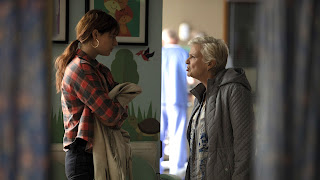Storytelling is hard, especially when it comes to
movie-making. Telling a single story is difficult; turning that story into 21
others is almost unfathomable; and turning all 22 into a cohesive whole is a
Herculean task. Yet that is what writers Christopher Markus and Stephen McFeely
and directors Joe and Anthony Russo have achieved with Avengers: Endgame, a film which sets new standards for its genre.
What these men have done, working with source
material from the inestimable Stan Lee and Jack Kirby, is to create a
modern-day Iliad or the equivalent of a Norse saga. Endgame is an epic story with a pantheon of heroes which spans
generations in its telling. It is also worth remembering that a whole contemporary
generation of movie goers has grown up and matured in the Marvel Cinematic
Universe (MCU) which gives the story an added resonance.
Compare the cohesion of the MCU with the Star Wars franchises, for example, which
seldom seen to know where they are going from film to film never mind a 22-episode
arc. In those terms you appreciate how good these people are at what they do.
Avengers: Endgame
is a genuine epic in terms of scale, but it also reaches epic proportions on an
emotional level. It’s not just about the spectacle, although there is plenty of
that, but it is neatly constructed around a series of beats that create a maximum
emotional resonance. The audience cares about these characters and we know they
care about each other and that provides the emotional resonance; lots of
sentiment with very little sentimentality.
Endgame follows almost immediately on from the
events of last year’s Avengers: Infinity
War but where that was all bombast and action, this is more reflective and
sombre. The stakes are established right at the start. Half of the world’s
population, including 50% of its heroes, have ceased to exist thanks to the mad
god Thanos and his acquisition of the six Infinity Stones. The remaining Avengers
and the other MCU heroes must set things right.
The film is a whisker over three hours, minus
credits, but it is immaculately constructed by Markus and McFeely. The bold but
downbeat first hour shows how these characters cope with the consequences of
defeat, the middle hour has them struggle to find a solution, and the final
hour is a Donnybrook of a resolution with some poignant emotional notes.
Credit must go to cinematographer Trent Opaloch
who gradually adjusts the temperature of his colour palette throughout to perfectly
match the mood of the story at any given point. The superb technical craft on
display coupled with some seamless writing and smooth direction means Endgame never felt long. For me the pacing
was spot on.
The themes of the film are note perfect. This is a
film that is about loss and regret and reconciliation, it’s also about legacy
and baton passing. There is a strong sense of family too; these characters have
changed and grown since Iron Man in 2008 and most of this audience has come to
see them as important parts of their lives.
None of this is to suggest that this film is
gloomy or depressing. There are some very funny moments and the film has some
of the best dialogue of the 22 films in the story arc. Ant-Man’s realisation about
Back to the Future might be the
funniest line in the whole MCU.
The performances are marvellous too. Some of these
actors are saying farewell to these characters and they have brought their ‘A’
game. Paul Rudd is great as Ant-Man, but Robert Downey Jr, Chris Evans, and
Chris Hemsworth are excellent as Iron Man, Captain America, and Thor – the big three
of the Marvel universe.
A personal highlight for me is the way Captain
America is handled. Everyone looks to him and he does not disappoint,
especially in one scene in the final battle which is simply majestic. And, in
the 22nd film in the extended franchise, he finally gets to say ‘the
line’. It can only be said once, and the delivery and the circumstances are
absolutely matchless.
The MCU has changed the way we consume movies. Eleven
years ago, a movie about a comic book playboy featuring a fading star was a
gamble, now franchise movie-making is the new normal. That has serious consequences
for the rest of the industry which are still being worked out, but when the
product is as excellent as this I’m inclined to be forgiving.







